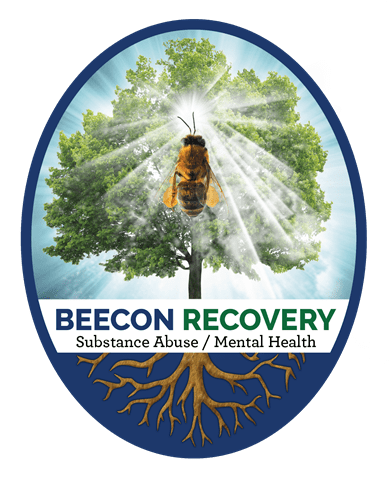Understanding Holistic Practices in Relapse Prevention
Importance of Holistic Approaches in Recovery
At Beecon Recovery, we recognize that a holistic approach is vital in aiding individuals on their journey to recovery. Instead of solely focusing on the symptoms of addiction, we address the whole person—mind, body, and spirit. This comprehensive perspective allows us to create an environment where individuals can heal from within, reducing the risk of relapse.
Adopting holistic practices can lead to several advantageous outcomes during recovery:
| Benefits of Holistic Approaches | Description |
|---|---|
| Improved Emotional Health | Holistic methods enhance emotional stability and promote mental clarity. |
| Decreased Relapse Rates | A balanced approach decreases the likelihood of returning to substance use. |
| Enhanced Coping Mechanisms | Participants gain better tools to manage stress and triggers. |
| Greater Self-Awareness | Self-reflection and mindfulness promote deeper self-understanding. |
Benefits of Incorporating Mind-Body Connection
The mind-body connection plays a crucial role in the recovery process. By integrating practices that nurture this connection, we can foster a deeper sense of wellness. These practices help align physical health with mental and emotional well-being, which is an essential factor in preventing relapse.
Research shows that when individuals engage in activities that connect the mind and body, such as meditation, yoga, and guided imagery, they experience various positive effects:
| Mind-Body Benefits | Impact |
|---|---|
| Reduced Anxiety and Stress | Regular practice lowers feelings of anxiety and helps manage stress levels. |
| Better Emotional Regulation | Enhances the ability to respond to emotions constructively. |
| Increased Focus and Clarity | Improves cognitive function, which aids decision-making. |
| Physical Health Improvements | Benefits include better sleep patterns, increased energy, and overall physical fitness. |
Incorporation of holistic practices addressing the mind-body connection is key to our approach. For example, integrating guided imagery into substance abuse treatment plans can be particularly effective in supporting emotional well-being and long-lasting recovery. Additionally, methods like neurofeedback therapy can strengthen this connection and provide further support on the path to sobriety.
At Beecon Recovery, we understand that fostering the mind-body connection: the impact of holistic practices on relapse prevention is integral to our success in helping individuals achieve and maintain their recovery goals.
Implementing Holistic Practices
At Beecon Recovery, we believe in the power of holistic practices to complement traditional treatments for drug addiction and mental health issues. By integrating various approaches, we support our clients in achieving a more balanced and fulfilling life. Below, we explore specific methods we implement in our programs.
Nutrition and Wellness Programs
Nutrition plays a crucial role in recovery. A well-balanced diet can significantly impact physical and mental well-being. We offer nutrition programs designed to educate clients on making healthier food choices that promote optimal brain function and emotional health. Our wellness programs emphasize the following components:
| Component | Benefits |
|---|---|
| Whole Foods | Provides essential nutrients for brain recovery |
| Hydration | Supports cognitive function and overall health |
| Nutrient-Rich Diet | Enhances mood stability and reduces cravings |
| Regular Meal Plans | Creates routine and supports metabolic health |
For more details, refer to our article on the role of nutrition in supporting mental health and sobriety.
Mindfulness and Meditation Techniques
We recognize the importance of mindfulness in fostering the mind-body connection: the impact of holistic practices on relapse prevention. Mindfulness and meditation techniques guide clients in managing stress and enhancing their emotional awareness. We incorporate various practices, including:
| Technique | Description |
|---|---|
| Guided Meditation | Helps reduce anxiety and improve focus |
| Deep Breathing Exercises | Enhances relaxation and helps manage cravings |
| Mindful Journaling | Encourages self-reflection and emotional release |
These techniques have been shown to improve coping skills and emotional regulation, further supporting long-term recovery. For additional insights, explore our article on integrating guided imagery into substance abuse treatment plans.
Physical Activities and Exercise
Exercise serves as a powerful tool in recovery. It promotes physical health while also enhancing mood and mental well-being. We encourage clients to participate in various physical activities that cater to their interests. Here’s how we integrate exercise into our programs:
| Activity | Benefits |
|---|---|
| Yoga | Enhances flexibility and reduces stress |
| Group Sports | Builds community and encourages social interactions |
| Cardio Workouts | Boosts energy levels and mood |
These activities foster camaraderie and motivation while also strengthening the mind-body connection. For insights on how biofeedback techniques enhance emotional regulation in recovery, check our article on how biofeedback techniques enhance emotional regulation in recovery.
By implementing these holistic practices, we aim to provide a comprehensive treatment approach that addresses both the physical and emotional aspects of recovery. Our focus is on nurturing the mind-body connection to support each individual’s journey toward lasting sobriety.
The Impact on Relapse Prevention
In our journey toward effective recovery, we recognize the critical role that holistic practices play in relapse prevention. These approaches not only enhance overall well-being but also build resilience and support long-term success.
Enhancing Psychological Well-being
Holistic practices significantly contribute to improved psychological health. By focusing on the mind-body connection, we foster an environment where emotional health thrives. Incorporating nutrition, mindfulness, and physical activities leads to healthier brain function and reduces stress, contributing to better mood regulation.
| Benefit Area | Impact on Psychological Well-being |
|---|---|
| Nutrition | Supports brain health and mood |
| Mindfulness | Reduces anxiety and stress |
| Physical Activity | Releases endorphins, improving mood |
By nurturing this connection, we also empower individuals to develop greater emotional resilience, further protecting against relapse.
Building Resilience and Coping Skills
Resilience is essential in overcoming challenges during recovery. Holistic practices equip us with coping strategies that enhance our ability to face life’s difficulties. Mindfulness techniques help us center ourselves during stressful moments, while physical activities offer a healthy outlet for built-up emotions.
| Coping Strategy | Description |
|---|---|
| Mindfulness | Techniques to stay present and manage stress more effectively |
| Exercise | Physical activity to reduce anxiety and improve well-being |
| Nutritional Support | Balanced diet to stabilize mood and energy levels |
These strategies build a strong foundation that encourages individuals to address triggers and cope with stressors, reducing the likelihood of relapse.
Promoting Long-Term Recovery Success
The integration of holistic practices into our recovery framework supports sustained success over time. When individuals engage in comprehensive approaches, they become more adept at managing their recovery journey.
| Key Components | Contribution to Long-Term Success |
|---|---|
| Tailored Programs | Customized plans address individual needs and challenges |
| Supportive Community | Building connections through group activities enhances motivation |
| Lifelong Learning | Ongoing education in holistic practices for continuous growth |
By fostering a community that emphasizes the mind-body connection, we create an environment where lasting recovery is achievable. For more insights on how these methods enhance recovery, consider exploring our articles on what is neurofeedback therapy and how does it aid addiction recovery?, the role of nutrition in supporting mental health and sobriety, and combining traditional and holistic therapies for comprehensive recovery.
Individualized Treatment Plans
Personalized treatment is essential in addressing the unique needs of each individual facing substance use disorders or mental health challenges. At Beecon Recovery, we emphasize the importance of individualized treatment plans that incorporate holistic practices tailored to personal needs.
Tailoring Holistic Practices to Personal Needs
We recognize that each person’s journey to recovery is different. Therefore, we take into account various factors such as personal history, preferences, and specific challenges when designing treatment plans. By aligning holistic practices with individual goals, we can create a more effective recovery experience.
Different domains can include a variety of holistic approaches:
| Holistic Practice | Description |
|---|---|
| Nutrition Therapy | Tailoring diet plans to support mental and physical health |
| Mindfulness Techniques | Incorporating meditation and relaxation strategies that resonate with the individual |
| Physical Activities | Designing exercise routines that align with personal fitness levels and interests |
Integrating Holistic Therapies with Evidence-Based Approaches
Combining holistic therapies with proven methodologies allows us to create comprehensive treatment plans that optimize recovery outcomes. We incorporate strategies that not only target the mind-body connection but also utilize evidence-based practices for a balanced approach.
Some of the methods integrated into our treatment plans include:
| Therapy Type | Description |
|---|---|
| Neurofeedback Therapy | Helps individuals gain control over their brain activity, which can aid in recovery. Learn more about what is neurofeedback therapy and how does it aid addiction recovery?. |
| Ketamine-Assisted Therapy | Provides innovative relief for mental health conditions. Discover the science behind ketamine-assisted therapy for mental health. |
| Amino Acid Therapy | Focuses on rebuilding brain chemistry after addiction. Read about amino acid therapy: rebuilding brain chemistry after addiction. |
This combined methodology enhances overall treatment effectiveness and supports sustainable recovery. By prioritizing the mind-body connection: the impact of holistic practices on relapse prevention, we aim to foster resilient and empowered individuals ready to embrace a healthier, more fulfilling life.
We also incorporate additional assessments such as live blood cell analysis: a window into your health during recovery and tools for emotional regulation like how biofeedback techniques enhance emotional regulation in recovery to enhance understanding and monitoring of each client’s progress throughout their recovery journey.
In our holistic treatment approach, we strive to blend tradition and modern science, ensuring comprehensive care that produces lasting change. More information can be found in our article about combining traditional and holistic therapies for comprehensive recovery.
Nurturing the Mind-Body Connection
A strong mind-body connection is vital for our overall well-being and plays an essential role in relapse prevention. At Beecon Recovery, we believe that nurturing this connection allows us to create a balanced lifestyle that promotes healing and sustained recovery.
Creating a Balanced and Healthy Lifestyle
To cultivate a balanced lifestyle, we focus on various aspects of health, including nutrition, physical activity, and emotional wellness. Proper nutrition is foundational, as it fuels both the body and mind. Incorporating whole foods and balanced meals can significantly enhance mood and energy levels. For more insights, refer to our article on the role of nutrition in supporting mental health and sobriety.
Successful recovery is also supported by regular physical activity. Exercise not only strengthens the body but also releases endorphins, which can help alleviate feelings of anxiety and depression. Below is a table summarizing essential components of a balanced lifestyle:
| Component | Benefits |
|---|---|
| Nutrition | Boosts mood and energy |
| Physical Activity | Releases endorphins for mood enhancement |
| Mindfulness | Reduces stress and promotes clarity |
| Sleep | Essential for recovery and mental well-being |
Fostering Self-Care and Self-Discovery
Self-care is crucial in our journey of recovery. It encourages us to listen to our bodies and understand our individual needs. Practicing self-care can include activities such as journaling, meditation, or engaging in hobbies that bring us joy. These activities foster self-discovery, allowing us to explore our emotions and develop coping strategies.
Implementing mindfulness techniques can enhance our self-awareness and emotional regulation. Techniques such as integrating guided imagery into substance abuse treatment plans can be beneficial in visualizing our goals and healing process.
Maintaining Holistic Practices for Ongoing Support
We recognize that maintaining holistic practices is essential for continuous support throughout our recovery. Regular engagement in mind-body practices helps sustain the benefits attained during treatment. This might include ongoing mindfulness sessions, participation in group activities, or therapy options like neurofeedback and biofeedback techniques.
Consistently engaging with holistic practices allows us to adapt to changes and challenges in our recovery. Formulating an individualized plan ensures that we remain aligned with our unique needs, which can also integrate approaches such as amino acid therapy to support brain chemistry during recovery.






